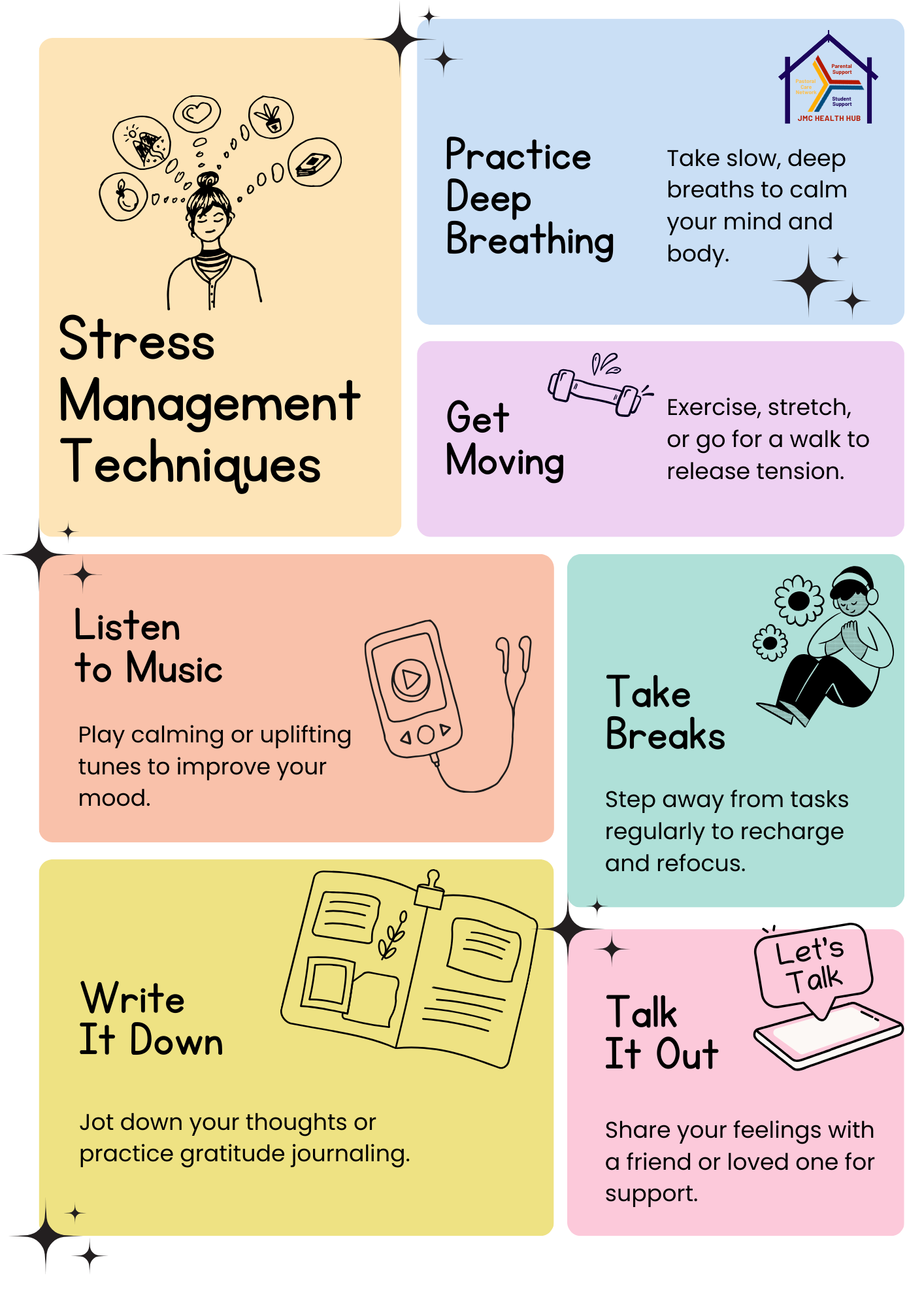Manage stress through exercise, sleep, balanced food, and relaxation.
At John McGlashan College, we recognise that stress is a common experience among students, arising from academic demands, personal relationships, and daily challenges. While a certain level of stress can serve as motivation, excessive stress can adversely affect health and happiness. Understanding and managing stress is crucial for maintaining balance and wellbeing.
Understanding Stress
Stress is the body's natural response to demands or pressures. It can manifest in various ways, including:
- Headaches or muscle tension.
- Difficulty sleeping or concentrating.
- Feelings of irritability, overwhelm, or anxiety.
Recognising these signs early is the first step toward effective stress management.
Common Sources of Stress
Identifying the origins of stress can aid in developing appropriate coping strategies. Common sources include:
- Academic responsibilities such as assignments and examinations.
- Social dynamics, including friendships and relationships.
- Family matters.
- Significant life transitions, like moving or starting at a new school.
Effective Stress Management Techniques
Implementing practical strategies can help maintain stress at manageable levels. Consider the following approaches:
- Physical Activity: Engage in regular exercise to release endorphins, which naturally reduce stress
- Balanced Nutrition: Maintain a healthy diet to support energy levels and cognitive function
- Adequate Sleep: Aim for 8–10 hours of quality sleep each night to allow the body to rest and recover
- Relaxation Practices: Incorporate techniques such as deep breathing, mindfulness, or yoga to calm the mind
- Time Management: Utilise planners or to-do lists to organise tasks and reduce last-minute pressures
Additionally, methods like self-compassionate touch—placing a hand on the heart or abdomen while taking deep breaths—have been shown to lower cortisol levels and improve wellbeing.
Seeking Support
Experiencing stress is a natural aspect of life and does not signify failure. At John McGlashan College, we encourage students to reach out for support when needed. Our pastoral care team, counsellors, and teaching staff are available to assist students in managing stress effectively.
Conclusion
Achieving balance and maintaining wellbeing involves recognising stressors and implementing strategies to manage them. Engaging in enjoyable activities, staying connected with family and friends, and seeking assistance when necessary are vital components of a healthy lifestyle.
Additional Resources
For further guidance and support, consider exploring the following resources:
- Mental Health Foundation NZ: Offers practical advice for managing stress
- Health Navigator NZ: Provides expert resources on stress management
Taking proactive steps today can lead to a healthier, more fulfilling tomorrow.


 Open Event Registration - Interested in enrolling?
Open Event Registration - Interested in enrolling? Employment opportunities - click if you're interested in working at McGlashan.
Employment opportunities - click if you're interested in working at McGlashan.